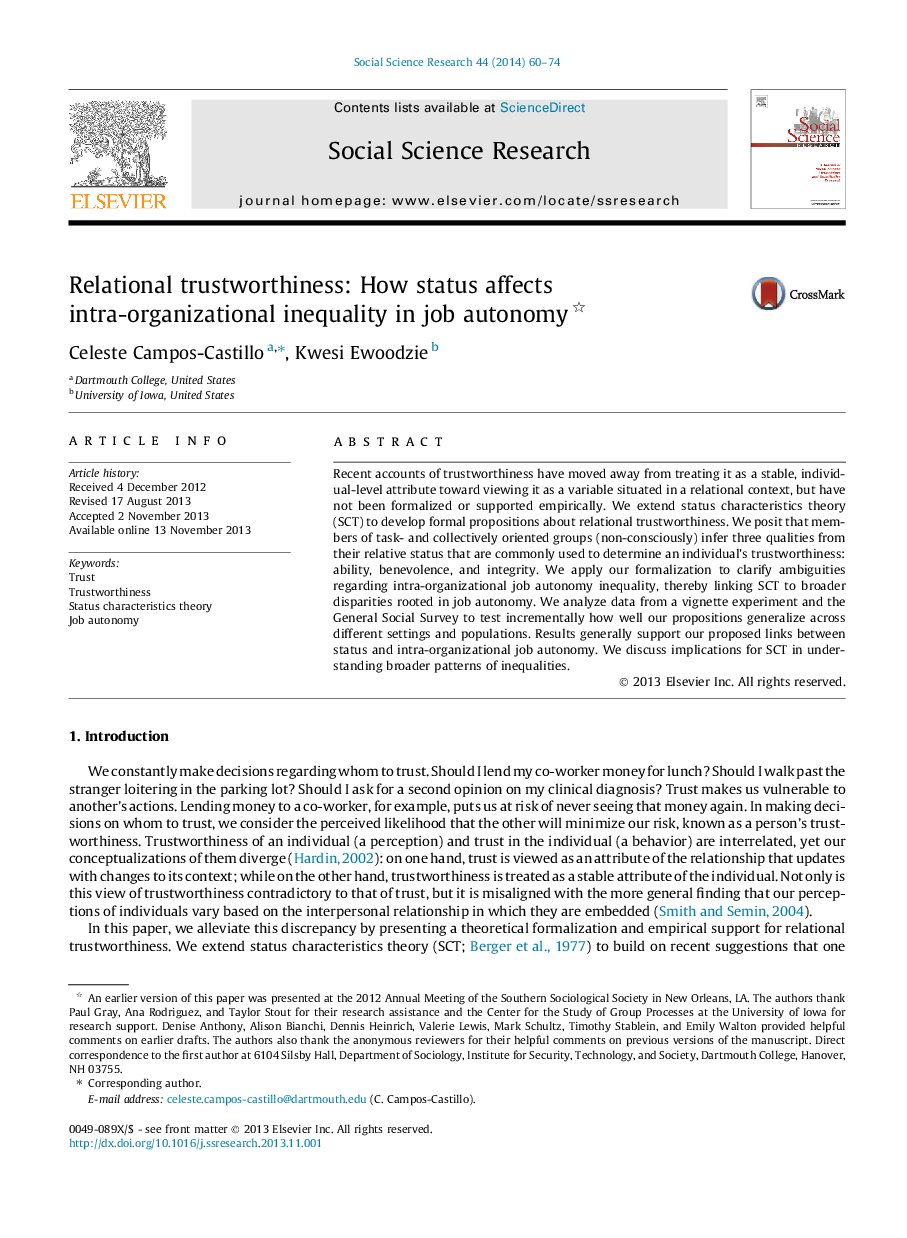| Article ID | Journal | Published Year | Pages | File Type |
|---|---|---|---|---|
| 7339393 | Social Science Research | 2014 | 15 Pages |
Abstract
Recent accounts of trustworthiness have moved away from treating it as a stable, individual-level attribute toward viewing it as a variable situated in a relational context, but have not been formalized or supported empirically. We extend status characteristics theory (SCT) to develop formal propositions about relational trustworthiness. We posit that members of task- and collectively oriented groups (non-consciously) infer three qualities from their relative status that are commonly used to determine an individual's trustworthiness: ability, benevolence, and integrity. We apply our formalization to clarify ambiguities regarding intra-organizational job autonomy inequality, thereby linking SCT to broader disparities rooted in job autonomy. We analyze data from a vignette experiment and the General Social Survey to test incrementally how well our propositions generalize across different settings and populations. Results generally support our proposed links between status and intra-organizational job autonomy. We discuss implications for SCT in understanding broader patterns of inequalities.
Related Topics
Social Sciences and Humanities
Psychology
Social Psychology
Authors
Celeste Campos-Castillo, Kwesi Ewoodzie,
